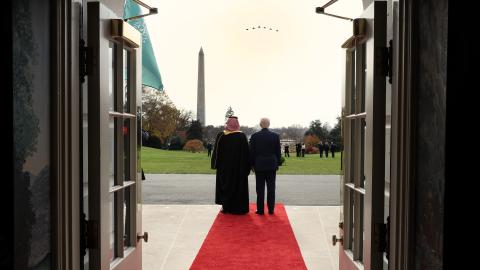The right and left are moving towards each other, in a sort of pincers movement designed to destroy the army of free traders pressing Congress to give President Obama what is known as fast-track authority. That would permit him to put any trade deals he negotiates with eleven Pacific Rim countries (the Trans-Pacific Partnership, or TPP) and the EU (the Transatlantic Trade and Investment Partnership, or TTIP) to Congress on a take-it-or-leave-it basis. Congress would be precluded from rejecting the concessions the American side had to make to get a deal done.
Dissident Democrats include greens who fear environmental goals might be subordinated to commercial interests, trade unions that believe more trade means fewer jobs and lower wages here at home, and pro-regulation Democrats who worry that the deals might weaken health and safety and other regulations. So adamant are the anti-free-traders on the left that the Democratic leadership, when in control of the Senate, would not even put fast-track to a vote, lest the members be forced to choose between the president and the trade unions.
The president believes he can count on Republicans and some Democrats to provide the votes that would grant him fast-track authority. Most Republicans in Congress have never met a trade union leader, or at least not one who might support them, and so have no fear of union animosity. And they are convinced that freer trade would stimulate economic growth, create high-wage jobs, and, not incidentally, please their corporate and financial backers. Obama hopes to persuade at least some Democrats to go along by promising his green and pro-regulation supporters that he will build into the agreements protections against efforts to use these trade deals to weaken various regulatory provisions of American law.
Enter the couplings of some rather strange bedfellows. Obama can count on support from key Republicans who otherwise have very little use for him. These strange bedfellow include Orrin Hatch in the Senate, and Paul Ryan in the House, the latter pushing the president’s trade deals while at the same time savaging his budget and tax proposals. Opposing the freer-trade coalition is a set of equally strange bedfellows: conservative Republican Tea Partiers and ultra-liberal Democrats. Conservatives contend that Obama has so over-shot his constitutional authority by granting de facto amnesty to some five million illegal immigrants, refusing to enforce federal laws against marijuana, and turning Guantanamo detainees lose to return to battle, that it would be folly to encourage his tendency to rely on unilateral executive orders by giving him fast-track authority. Rick Manning, president of a Tea Party advocacy group, puts it this way, “After President Obama’s power grabs … people have come to the conclusion you should not be giving this president any additional authority.” Liberal Democrats are annoyed with what they see as the president’s failure to protect workers whose wages have stagnated during his tenure in office. “We have trusted and trusted for years and years, and it’s only been to the detriment of American workers … Fast track … will not happen,” Rosa DeLauro, liberal Democratic congresswoman from Connecticut, told reporters.
Proponents of the deals with the EU and the eleven Pacific Rim countries make two arguments. Ryan contends that one out of every five jobs in America is dependent on trade, which seems a bit of an exaggeration given the fact that our exports of goods and services average only about 13.5% of GDP and are exceeded by our imports, which suggests that trade both giveth and taketh away, perhaps creating more jobs for workers making things we buy than it does jobs for American workers making things foreigners buy. The president now adds a second argument. His administration’s just-released national security strategy document contends that trade with Pacific Rim countries would shore up alliances crucial to Obama’s “pivot” to Asia, announced after he proclaimed the wars in the Middle East at an end.
Politicians know that free trade has winners and losers, and right now the potential winners, which include large multi-national corporations and major investment banks, are not quite as popular as the potential losers -- workers who fear their jobs will disappear if we open our markets even more widely to imports from countries that are not as fastidious in adhering to trade rules as we are. China now allows U.S. companies to operate only if they turn over vital intellectual property and trade secrets to the communist regime. And America’s major international airlines -- American, Delta, and United Airlines -- claim they are losing market share in the lucrative business-class overseas market to heavily subsidized Middle Eastern carriers.
Finally, opponents of TPP and TTIP want any agreements to include prohibitions on currency manipulation. That is a bridge too far for both the U.S. and its trading partners. The G-20 finance ministers, meeting in Istanbul last week, gave their blessing to policies designed to drive down the value of the yen and the euro, an operation the Federal Reserve Board has performed on the dollar for several years. The dollar remains strong only because our manipulator-in-chief, the Fed, is preparing to exit the game, and our economy is gathering strength while Japan and euroland are struggling.
Not all the obstacles to these trade deals are located on our side of the Atlantic and Pacific. In Asia, our trading partners worry about antagonizing China, and in the EU, Brussels has been deluged with complaints that provisions of TTIP that allow foreign investors to sue in international rather than in national courts would undermine Europe’s stringent health, safety, and environmental standards. Worse, say Europe’s TTIP critics, those provisions involve an unacceptable surrender of national sovereignty, something that has not seemed to trouble our European trading partners very much when they are surrendering to Brussels rather than to Washington.
The administration believes it has enough votes to win fast-track authority for the president. The right-left coalition disputes that. With Republicans rather than anti-trade Democrats in control of the Senate, the president will finally have his request brought to the floor for a vote, which promises to be very close indeed. Meanwhile, both sides are making deals in exchange for votes, and as Kenny Rogers might say, there’ll be time enough for countin’ those votes when the dealin’s done.
















